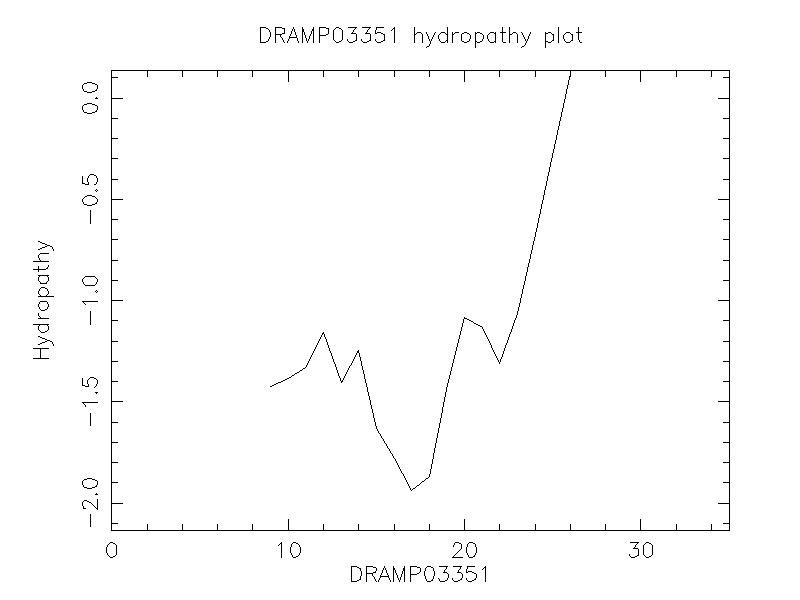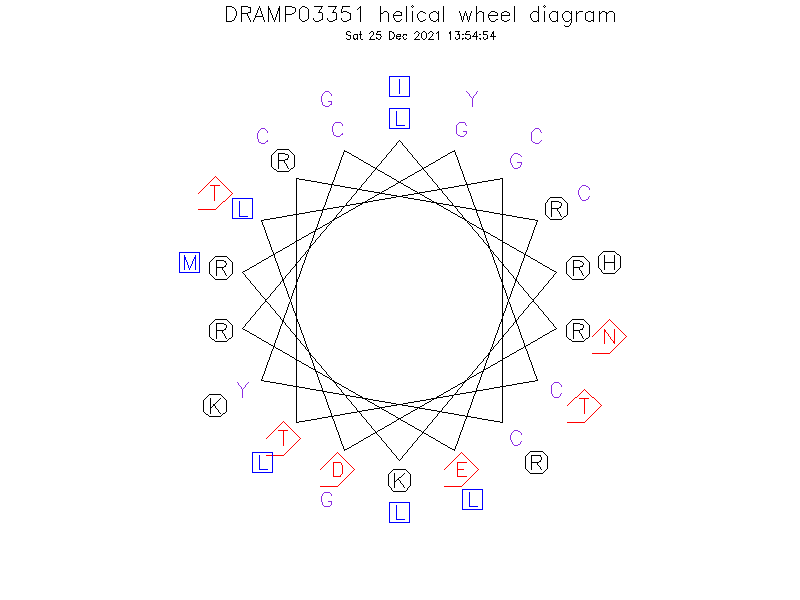General Information
-
DRAMP ID
- DRAMP03351
-
Peptide Name
- Alpha-defensin cryptdin-26 (Defensin-related cryptdin-26; Rodents, mammals, animals)
-
Source
- Mus musculus (Mouse)
-
Family
- Belongs to the alpha-defensin family
-
Gene
- Defa26
-
Sequence
- LRDLGCYCRKRGCTRRERINGTCRKGHLMYTLCCL
-
Sequence Length
- 35
-
UniProt Entry
- Q3L180
-
Protein Existence
- Transcript level
Activity Information
-
Biological Activity
- Antimicrobial
-
Target Organism
- No MICs found in DRAMP database
-
Hemolytic Activity
-
- No hemolysis information or data found in the reference(s) presented in this entry
-
Cytotoxicity
-
- Not included yet
-
Binding Target
- Not found
Structure Information
-
Linear/Cyclic
- Not included yet
-
N-terminal Modification
- Not included yet
-
C-terminal Modification
- Not included yet
-
Nonterminal Modifications and Unusual Amino Acids
- Not included yet
-
Stereochemistry
- Not included yet
-
Structure
- Not found
-
Structure Description
- Not found
-
Helical Wheel Diagram
-
PDB ID
- None
-
Predicted Structure
- There is no predicted structure for DRAMP03351.
Physicochemical Information
-
Formula
- C170H291N61O46S7
Absent Amino Acids
- AFPQSVW
Common Amino Acids
- R
Mass
- 4149.98
PI
- 9.61
Basic Residues
- 10
Acidic Residues
- 2
Hydrophobic Residues
- 6
Net Charge
- +8
-
Boman Index
- -107.05
Hydrophobicity
- -0.54
Aliphatic Index
- 66.86
Half Life
-
- Mammalian:5.5 hour
- Yeast:3 min
- E.coli:2 min
Extinction Coefficient Cystines
- 3355
Absorbance 280nm
- 98.68
Polar Residues
- 16
DRAMP03351

Comments Information
Function
- May have microbicidal activities (By similarity).
Literature Information
- ·Literature 1
-
Title
- Rapid evolution and diversification of mammalian alpha-defensins as revealed by comparative analysis of rodent and primate genes.
-
Pubmed ID
- 15494476
-
Reference
- Physiol Genomics. 2004 Dec 15;20(1):1-11.
-
Author
- Patil A, Hughes AL, Zhang G.

